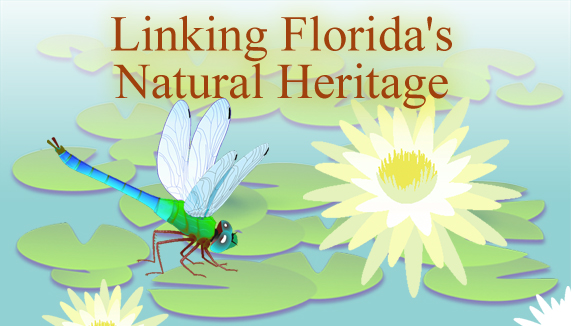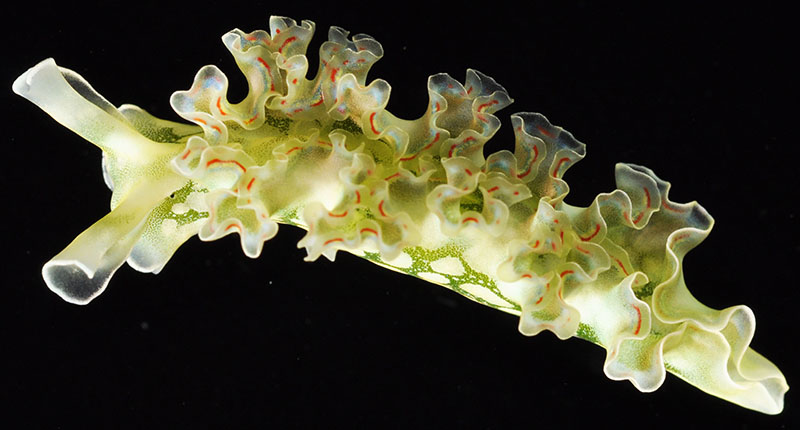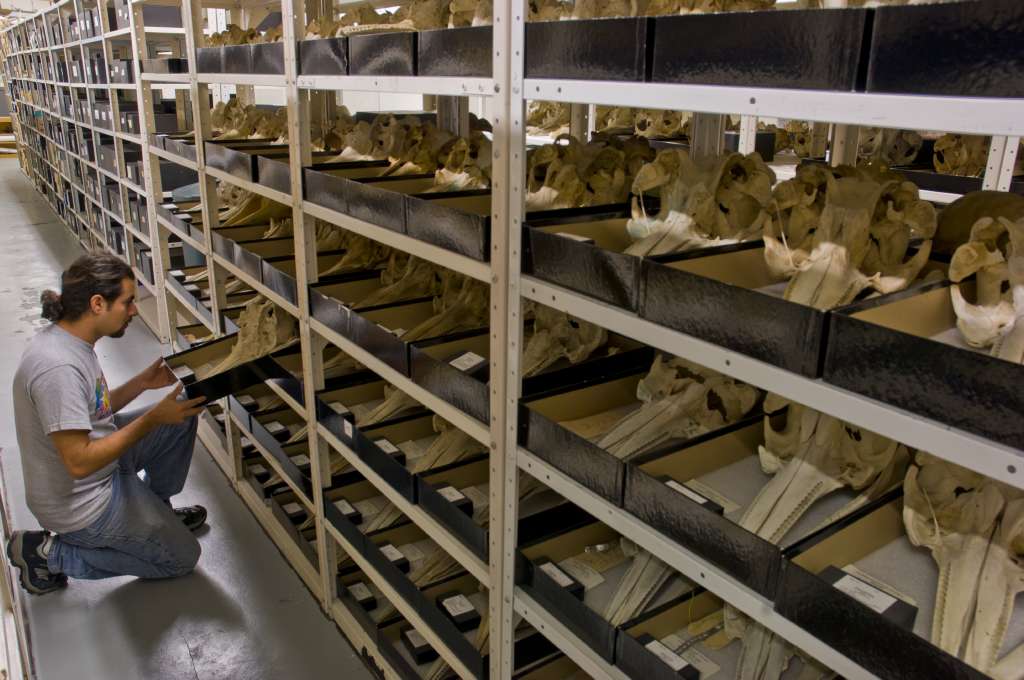iDigBio Listed as a Resource on the Linking Florida's Natural Heritage Page

iDigBio is now listed as a resource to locate specimen information on Florida biodiversity on the Linking Florida's Natural Heritage Page.

iDigBio is now listed as a resource to locate specimen information on Florida biodiversity on the Linking Florida's Natural Heritage Page.
Job Title:Division Director, Division of Biological Infrastructure
Agency:National Science Foundation
Job Announcement Number:DBI-2015-0002
Salary Range: $158,700.00 to $178,000.00 / Per Year
Open Period: Tuesday, March 10, 2015 to Friday, April 10, 2015
Location: 1 vacancy - Arlington, VA
Become a part of our mission to maintain and strengthen the vitality of the US science and engineering enterprise. For over 60 years, the National Science Foundation (NSF) has remained the premier Federal agency supporting basic research at the frontiers of discovery across all fields, as well as science and engineering education at all levels.
This position will be filled on an Intergovernmental Personnel Act (IPA) assignment basis. Under the provisions of the IPA, assignees remain on the payroll of his/her home institution and the institution continues to administer pay and benefits. The National Science Foundation (NSF) will reimburse the home institution for NSF's negotiated share of the costs.
DUTIES:
Serves as Division Director, Division of Biological Infrastructure (DBI) and as a member of the leadership team of the Directorate for Biological Sciences. DBI contributes to NSF mission by supporting the development and enhancement of biological resources, human capital, and centers. These investments underpin advances in all areas of biological research. DBI supports for research resources includes development of informatics tools and resources, development of new instrumentation, the curatorial improvement and computerization of research collections, improvements of research facilities at biological field stations and marine laboratories as well as in living stock collections. The incumbent has managerial and oversight responsibilities for the effective use of division staff and resources in meeting organizational goals and objectives. This includes directing the activities of the Division of Biological Infrastructure, assessing needs and trends, developing breakthrough opportunities, implementing overall strategic planning, and policy setting. Supervises and provides leadership and guidance to senior level DBI staff (Deputy Division Director), program officers, administrative and support personnel. Determines funding requirements, prepares and justifies budget estimates, balances program needs, allocates resources, and oversees the evaluation of proposals and recommendations for awards and declinations. Represents NSF to relevant external groups and fosters partnerships with other Divisions, Directorates, Federal agencies, scientific organizations and the academic community.
To learn more visit the original job posting.
Job Title:Staff Curator, GS-1015-12/13
Department:Department Of The Interior
Agency:Office of the Secretary of the Interior
Job Announcement Number:OS-EG-15-MM1343557(DEU)
Salary Range: $75,621.00 to $116,901.00 / Per Year
Open Period: Monday, March 9, 2015 to Friday, March 13, 2015
The Department of the Interior is devoted to protecting and preserving the natural resources of this great nation, including National Parks, Landmarks, and the well-being of communities, including those of Native American, Alaska Natives, Native Hawaiians, and affiliated Islanders.
Visit the original job posting to learn more.

Photo provided by FLMNH Invertebrate Zoology
Auto req ID
34999BR
Business Title
Biodiversity Informatics Manager
School/Unit
Faculty of Arts and Sciences
Sub-Unit
------------
Location
USA - MA - Cambridge
Job Function
Research
Time Status
Full-time
Schedule
Monday - Friday, 35 hours per week
Department
Harvard University Herbaria
Salary Grade
059
Union
00 - Non Union, Exempt or Temporary
Duties & Responsibilities
The Harvard University Herbaria (HUH), with more than five million specimens, comprise the world’s largest University herbarium. Research at HUH in evolution, biodiversity, and conservation revolves around the scientific collections and libraries. In recent years, several ambitious projects to digitize the entire HUH holdings have been initiated. At present, 10% of the collections are digitized.
The Biodiversity Informatics Manager at HUH will provide leadership, management, and stewardship of the informatics collections and initiatives. The successful candidate will be responsible for addressing the needs of the academic and scientific community engaged with HUH collections, and the natural history collections more broadly. To meet these needs, the candidate will work with the HUH Director and staff, including a three member biodiversity informatics team, to set priorities and develop plans and initiatives. This may additionally involve interacting with FAS Science Division Research Computing to develop and implement technical solutions.
The Biodiversity Informatics Manager will oversee the development, maintenance, and enhancement of the databases that document the collections and support HUH activities, including library related goals. The candidate will supervise and manage HUH’s digitization activities and oversee the management and sharing of the resulting digital assets. With database and informatics support from Research Computing, the successful candidate will initiate, develop, implement, and manage scientific and academic applications and informatics projects and initiatives to ensure access to and sharing of biodiversity data with the world. Tasks include, but are not limited to: collecting, organizing, and analyzing natural history specimens, spatial modeling, and databasing. The candidate will work with the Director and HUH staff to develop grant proposals for the funding of informatics projects by external agencies, including the National Science Foundation. The person in this position will also act as a liaison to organizations and projects internally, nationally and internationally, including the Harvard Museums of Science & Culture, in which acquisition and delivery of biodiversity information is central.
Basic Qualifications
Masters Degree in botany or a related discipline and five or more years experience in planning, development, and implementation of biodiversity informatics projects. Fluency in at least one programming language is a requirement. Previous experience with highly technical and collaborative projects, including digitization of biological collections and digital media access to collections via databases, digital tools, and websites. Familiarity with at least some of the following: UNIX, HTML, XML, CSS, PHP, SQL, MySQL, ArcGIS, Mac OS X, Windows 7/8, Microsoft Office, Adobe Photoshop, WordPress.
Additional Qualifications
Proven ability to lead, manage, and engage a broad constituency is required. Demonstrated knowledge of museum collections and biodiversity informatics preferred. Superior communications skills required. Must be able to work with people with varying degrees of IT expertise.
Additional Information
When applying for this position please submit your resume and cover letter in our preferred format as one combined document (resume followed by cover letter).
All formal offers will be made by FAS Human Resources.
Pre-Employment Screening
Criminal
Identity
EEO Statement
We are an equal opportunity employer and all qualified applicants will receive consideration for employment without regard to race, color, religion, sex, national origin, disability status, protected veteran status, gender identity, sexual orientation or any other characteristic protected by law.
Please apply to this job on the Harvard Employment website: http://hr.harvard.edu/jobs/
GAINESVILLE, Fla. --- The winning artists of images of nanoparticles to a woolly mammoth in the University of Florida Elegance of Science Contest will be recognized in an award ceremony at the Florida Museum of Natural History March 20 at 3:30 p.m.
A committee of six judges from Gainesville’s art and science communities evaluated 94 entries on their scientific and artistic merit.

Photo courtesy of Florida Museum of Natural History
Nature, an international weekly journal of science, posted Christopher Kemp's article Museums: the endangered dead on February 18, 2015.